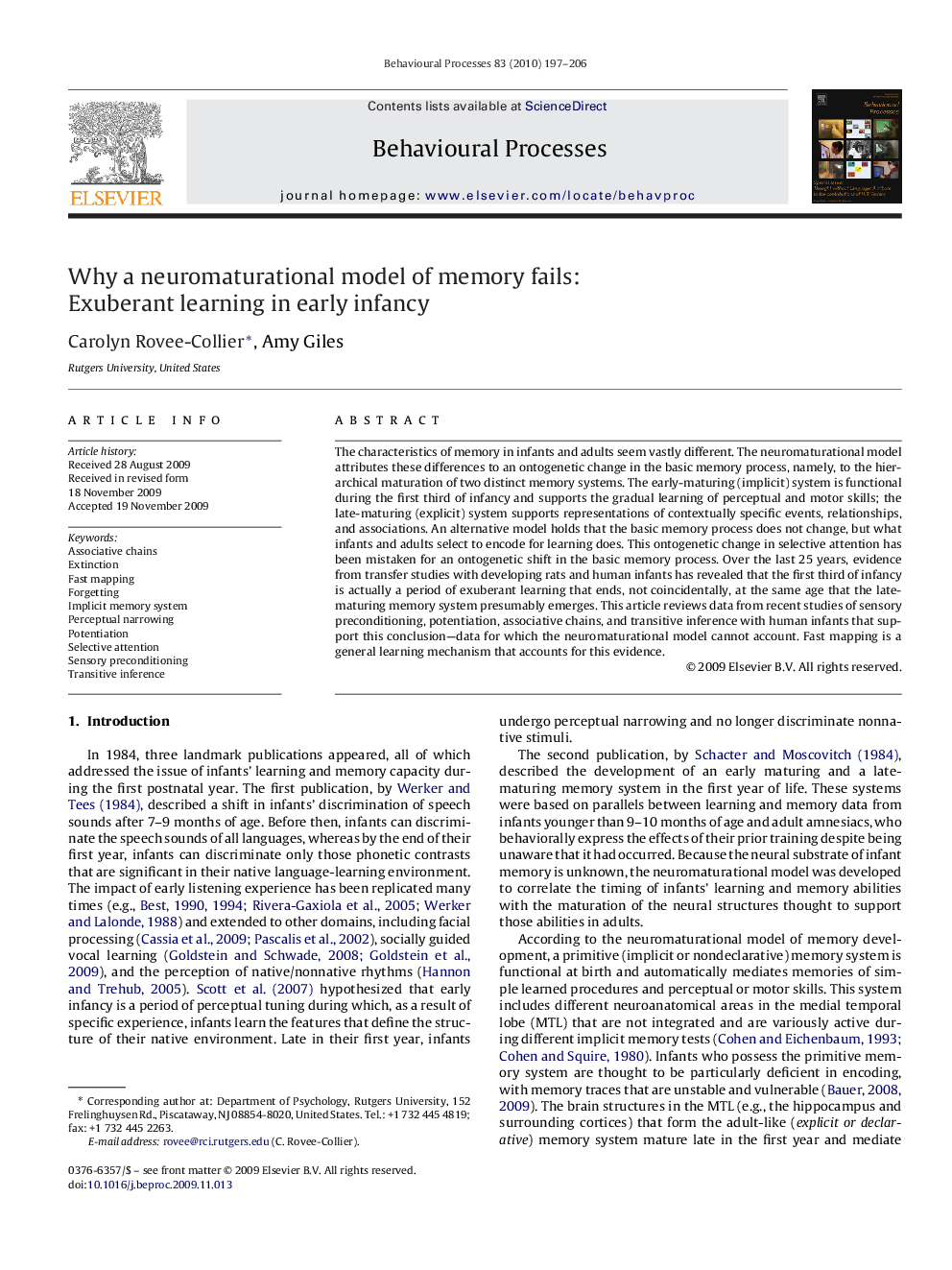| کد مقاله | کد نشریه | سال انتشار | مقاله انگلیسی | نسخه تمام متن |
|---|---|---|---|---|
| 2427304 | 1105954 | 2010 | 10 صفحه PDF | دانلود رایگان |

The characteristics of memory in infants and adults seem vastly different. The neuromaturational model attributes these differences to an ontogenetic change in the basic memory process, namely, to the hierarchical maturation of two distinct memory systems. The early-maturing (implicit) system is functional during the first third of infancy and supports the gradual learning of perceptual and motor skills; the late-maturing (explicit) system supports representations of contextually specific events, relationships, and associations. An alternative model holds that the basic memory process does not change, but what infants and adults select to encode for learning does. This ontogenetic change in selective attention has been mistaken for an ontogenetic shift in the basic memory process. Over the last 25 years, evidence from transfer studies with developing rats and human infants has revealed that the first third of infancy is actually a period of exuberant learning that ends, not coincidentally, at the same age that the late-maturing memory system presumably emerges. This article reviews data from recent studies of sensory preconditioning, potentiation, associative chains, and transitive inference with human infants that support this conclusion—data for which the neuromaturational model cannot account. Fast mapping is a general learning mechanism that accounts for this evidence.
Journal: Behavioural Processes - Volume 83, Issue 2, February 2010, Pages 197–206